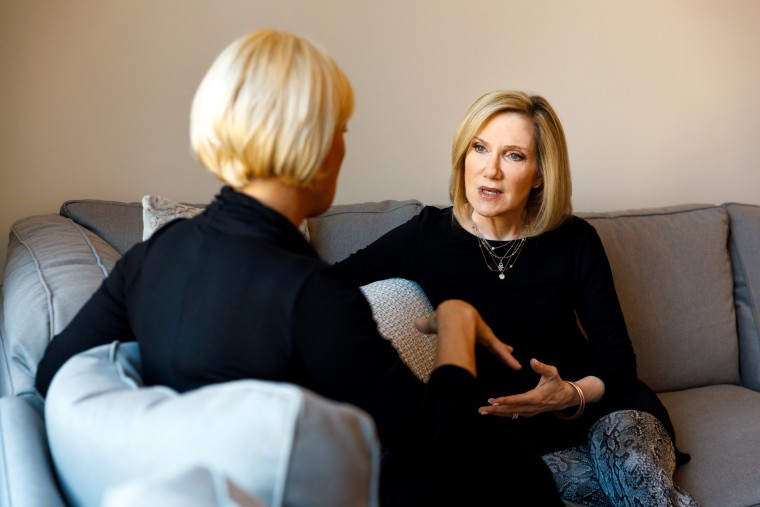When it comes to any topic related to weight, there’s a lot of confusion — even about the basics.
That’s why I took the top questions I hear all the time and have boiled the answers down in an accurate, easy-to-digest manner. Separating fact from fiction can help you find a happier, less stressful and more successful lifestyle.
But remember, when it comes to body weight, there are not perfect answers — one size does not fit all.
How do I figure out a “healthy weight” for me?
While aiming for a “healthy weight” is a good concept, it’s quite a personal decision for both you and your doctor. Body mass index (BMI, that connection between height and weight) is only one measure of health — and it’s not one that is well understood or helpful for most people. It’s based on sound science, but many people can be perfectly healthy with a BMI that’s in the overweight, or even early obese category.
RELATED: Mika: I'm not afraid to talk about my weight — and you shouldn't be either
So, what does that mean for you? Your physical health is the primary measure to start with. And while it might not be your “dream” weight, if your body is healthy, that’s the best baseline weight for you. Also make sure you are at a weight, or have a goal weight, that you can sustain with a realistic, not heroic, effort. Remember that “not-gaining” also requires effort and is part of that choice. That’s why it’s called “lifestyle” — you’re in it for life!
Does the number of the scale really matter?
The number on the scale is just one measure that matters when looking at overall health. Look for other indicators, including waist circumference, lean body mass (muscle mass) and body fat percentage. Ask your doctor about these measures – you need the whole picture to figure out the best weight for yourself.
Most importantly, have an open conversation with your doctor about all of these numbers, and determine if you have any medical issues directly linked to excess body weight — like diabetes, high blood pressure, sleep apnea or joint pain. And remember that losing just 5 to 10 percent of your starting weight, for many people, just 10 pounds or so, can really improve your health.
Do I really need to weigh myself?
While many studies show that regular weighing is a habit that is associated with weight loss and long-term maintenance, it’s all up to you. “Regular” can mean once a day, once a week, or once a month. It’s important to weigh yourself now and then — if only to take the stress and pressure off that number of the scale and put it in perspective.
It’s just one measure. And, you can learn to see normal variations in your weight – we all have them! Whether it’s that time of the month, or a bowl of canned soup — it’s important to know the ebbs and flow of your weight pattern. Set a range for your weight rather than one specific number, and allow yourself a three to five pound range of “acceptable.” Use that range, along with how your clothes fit, and even how your rings fit (an index of fluid) to best gauge your “true” self.
And if you really struggle with the scale — for example, if you have a “bad” day if the number doesn’t please you or a “good” day if you like what you see — then weigh yourself less often. There is no “right” number, but avoid more than once a day!
Why is it much harder for me to lose weight than other people I know?
When it comes to ease of losing weight, some people have won the genetic lottery. Metabolic rate (how your body burns calories) has a range of “normal” — but some people are naturally more efficient (translation: saves more calories and gains weight more easily). In times of famine you’d be a survivor – that’s genetic protection.
If it’s difficult for you to lose weight, focus on more realistic goals for yourself — and aim for a slower rate of weight loss, or even just don’t gain and stay even (still a lot of effort).
Stop comparing your rate of weight loss with others — there is a lot of normal variation in nature. You need to be in touch with your body, to observe what is the best plan for you. (Sometimes it might also be as simple as tracking your food intake more precisely, and not estimating your portions. But if you’re sure of your tracking, this is your metabolic profile). If you’re really struggling, talk to your doctor to rule out any potential medical conditions, like thyroid problems.
Is eating or activity more important for losing weight?
Like it or not, “calories in and calories out” remain the basic biological principle for weight loss. Cutting back on calories eaten daily is the primary way to lose weight — and there are many healthy ways to do it. And while physical activity can make this effort a lot easier, do the math. It can take five minutes to eat 500 calories and two hours to burn it off.
Regular moderate exercise (like brisk walking, biking, or gardening for 30 minutes) supports a calorie-cutting effort — but does not replace it. Plus, intense exercise can also stimulate your appetite – and cause you to overeat. And it’s not just eating and activity balance that promote weight loss, you need to manage your stress, and get enough sleep to optimize your success. It’s the whole lifestyle package that makes both short and long-term weight control sustainable.
Madelyn Fernstrom, Ph.D. is the NBC News' health editor. Follow her on Twitter @drfernstrom.
